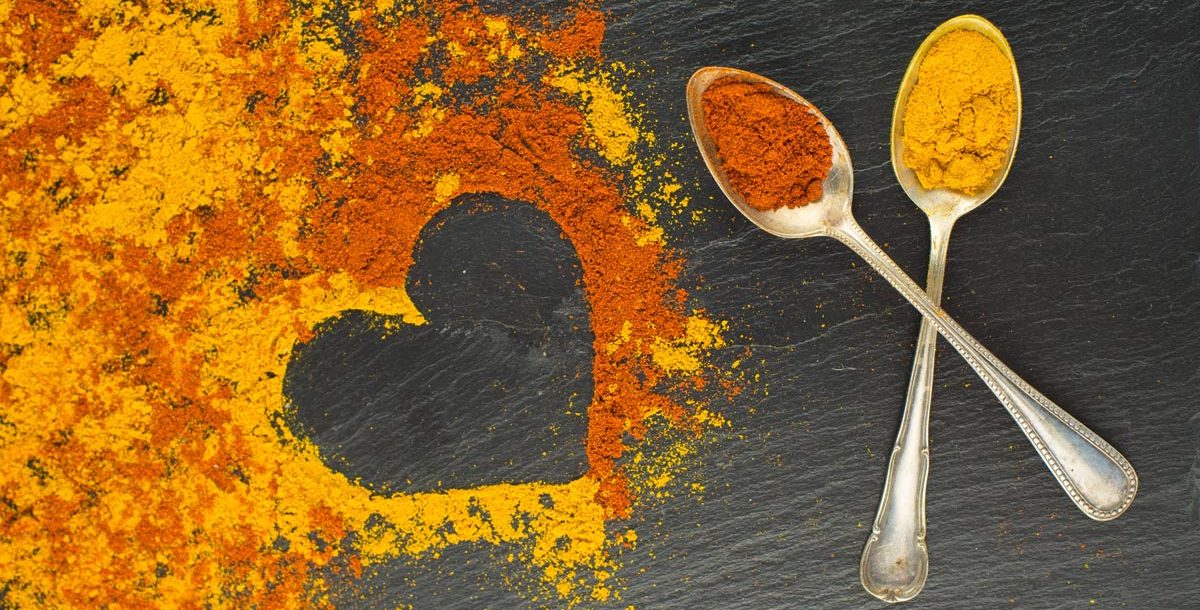Heart disease is a leading cause of death in the United States. This might sound frightening, but you can empower yourself by taking steps toward better heart health. Keeping your heart healthy means eating a healthy diet and getting enough exercise. Even if you already have heart disease, diet and lifestyle changes can help stop or reverse the damage.
Some people turn to natural remedies to help keep their hearts healthy. For thousands of years, different populations have used spices and herbs to heal what ails them. If you want to give your heart health a boost, try seasoning your food with these delicious herbs and spices.
IMPORTANT NOTE: Some natural remedies can interfere with some medications. It’s generally safe to season your food with these herbs. However, if you’re thinking of taking them as supplements, it’s important to do careful research and talk to your doctor before adding them to your diet.
What’s the difference between herbs and spices?
Herbs and spices are similar in that they both come from plants. However, herbs are typically derived from the fresh part of a plant. As for spices, they usually come from the dry, root part of plants. Both spices and herbs can be used to add favor to foods and also have health benefits.
Heart healthy herbs and spices to try
Cinnamon
Cinnamon is a delicious spice that goes great in your favorite breakfast and dessert recipes. It’s also popular around the winter holidays for its delightful smell.
People have used cinnamon for thousands of years, and it’s loved for its numerous medicinal properties. One of those properties is its ability to lower unhealthy cholesterol levels. It also might lower your blood pressure. Studies show that a daily sprinkling of cinnamon may even help reduce your risk of heart disease.
Garlic
Garlic has a strong odor, but it can kick your recipes up a notch. It kicks your heart health up a notch, too. This kitchen staple may help a variety of conditions, ranging from the common cold to infections to high blood pressure.
Fresh garlic can lower blood pressure, bring down bad cholesterol levels and reduce swelling. By doing this, garlic might reduce your risk of heart attack or stroke.
Cayenne
If you like to add a bit of spicy heat to your food, then you’re in luck. Cayenne pepper helps keep blood flowing well around your body. Capsaicin is a compound in cayenne that may help lower your blood pressure. Increased blood flow plus lower blood pressure equals a healthier heart.
Turmeric
Turmeric is a bright yellow spice that’s a staple in Indian foods. Even if you haven’t ventured out into this type of cooking, you’ve probably heard of the health benefits of turmeric. Curcumin is what makes turmeric yellow. It’s also what gives the spice some health benefits.
Curcumin may help lower bad cholesterol, reduce inflammation and help prevent blood clots. People swear by the healthy effects of turmeric, and there’s research to back it up, too.
Ginger
Ginger is a wonderful addition to salads, tea, baked goods and Asian dishes. Research shows that eating ginger daily is also helpful in lowering your blood pressure, reducing cholesterol and keeping your blood vessels supple and open. Studies show that eating ginger stops the hardening of those arteries, potentially making it an effective herb for preventing and treating heart disorders.
Coriander
Coriander is an herb used in dishes all over the world. Populations that include a lot of coriander in their diets boast some of the lowest rates of heart disease, too.
Never heard of coriander? In the United States, it’s more commonly known as cilantro. While these two aren’t the exact same thing, they come from the same plant.
This herb may help reduce some of the risk factors for heart disease, such as lowering bad cholesterol and blood pressure. Because coriander acts as a diuretic, a substance that flushes extra fluids and sodium from your body, it can help keep your blood pressure down.
Want to learn more about your heart health? Take our free, online heart risk assessment today.






